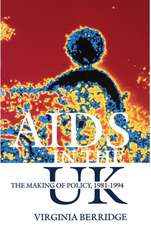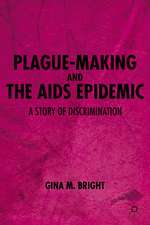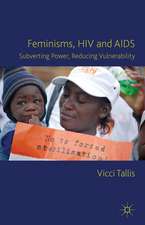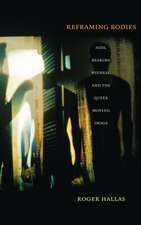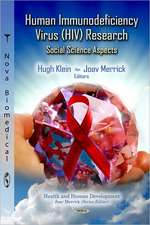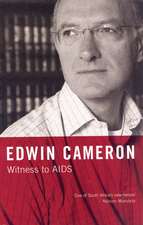Positive Images: Gay Men and HIV/AIDS in the Culture of 'Post Crisis': Library of Gender and Popular Culture
Autor Dion Kaganen Limba Engleză Paperback – 26 ian 2022
| Toate formatele și edițiile | Preț | Express |
|---|---|---|
| Paperback (1) | 174.25 lei 3-5 săpt. | +46.25 lei 7-13 zile |
| Bloomsbury Publishing – 26 ian 2022 | 174.25 lei 3-5 săpt. | +46.25 lei 7-13 zile |
| Hardback (1) | 569.22 lei 3-5 săpt. | |
| Bloomsbury Publishing – 4 apr 2018 | 569.22 lei 3-5 săpt. |
Din seria Library of Gender and Popular Culture
- 30%
 Preț: 567.99 lei
Preț: 567.99 lei - 23%
 Preț: 191.22 lei
Preț: 191.22 lei - 20%
 Preț: 219.27 lei
Preț: 219.27 lei - 30%
 Preț: 656.47 lei
Preț: 656.47 lei - 23%
 Preț: 196.96 lei
Preț: 196.96 lei - 30%
 Preț: 509.52 lei
Preț: 509.52 lei - 22%
 Preț: 230.61 lei
Preț: 230.61 lei - 23%
 Preț: 191.04 lei
Preț: 191.04 lei - 22%
 Preț: 231.34 lei
Preț: 231.34 lei - 30%
 Preț: 509.52 lei
Preț: 509.52 lei - 30%
 Preț: 540.65 lei
Preț: 540.65 lei - 30%
 Preț: 540.09 lei
Preț: 540.09 lei - 23%
 Preț: 223.28 lei
Preț: 223.28 lei - 23%
 Preț: 197.24 lei
Preț: 197.24 lei - 23%
 Preț: 174.07 lei
Preț: 174.07 lei - 23%
 Preț: 191.31 lei
Preț: 191.31 lei - 30%
 Preț: 598.91 lei
Preț: 598.91 lei - 28%
 Preț: 496.43 lei
Preț: 496.43 lei - 24%
 Preț: 189.61 lei
Preț: 189.61 lei - 23%
 Preț: 191.56 lei
Preț: 191.56 lei - 24%
 Preț: 196.08 lei
Preț: 196.08 lei - 23%
 Preț: 146.78 lei
Preț: 146.78 lei - 21%
 Preț: 216.99 lei
Preț: 216.99 lei - 23%
 Preț: 197.24 lei
Preț: 197.24 lei - 24%
 Preț: 196.44 lei
Preț: 196.44 lei - 30%
 Preț: 538.61 lei
Preț: 538.61 lei - 23%
 Preț: 196.96 lei
Preț: 196.96 lei - 30%
 Preț: 597.87 lei
Preț: 597.87 lei - 23%
 Preț: 197.05 lei
Preț: 197.05 lei - 14%
 Preț: 176.44 lei
Preț: 176.44 lei - 23%
 Preț: 222.46 lei
Preț: 222.46 lei - 30%
 Preț: 715.34 lei
Preț: 715.34 lei
Preț: 174.25 lei
Preț vechi: 201.18 lei
-13% Nou
Puncte Express: 261
Preț estimativ în valută:
33.35€ • 34.68$ • 27.91£
33.35€ • 34.68$ • 27.91£
Carte disponibilă
Livrare economică 22 februarie-08 martie
Livrare express 08-14 februarie pentru 56.24 lei
Preluare comenzi: 021 569.72.76
Specificații
ISBN-13: 9781350259997
ISBN-10: 1350259993
Pagini: 320
Ilustrații: 33 bw illus
Dimensiuni: 138 x 216 x 19 mm
Greutate: 0.44 kg
Editura: Bloomsbury Publishing
Colecția Bloomsbury Academic
Seria Library of Gender and Popular Culture
Locul publicării:London, United Kingdom
ISBN-10: 1350259993
Pagini: 320
Ilustrații: 33 bw illus
Dimensiuni: 138 x 216 x 19 mm
Greutate: 0.44 kg
Editura: Bloomsbury Publishing
Colecția Bloomsbury Academic
Seria Library of Gender and Popular Culture
Locul publicării:London, United Kingdom
Caracteristici
Examines literature, film, TV, documentaries and news coverage from across the English-speaking world to unearth the socio-cultural foundations underpinning the 'post-crisis' period
Notă biografică
Dion Kagan is an academic, editor and arts writer. He has lectured in gender, screen and cultural studies at the University of Melbourne and is currently researching stigma and disease at La Trobe University.
Cuprins
List of IllustrationsAcknowledgementsSeries Editors' ForewordIntroduction: Crisis/Post-Crisis1. Gay Redemption: Domestication and Disavowal in the Gay 90s2. Positive Men Are from Mars, Negative Men Are from Venus: Sero-Melodrama in Queer As Folk3. Crisis Re-Runs: Barebacking, Chemsex and Post-Crisis Sex Panic4. AIDS Heritage in The Line of Beauty5. AIDS Retrovisions: Dallas Buyers Club and The Normal HeartConclusion: Feeling GenerationalNotesBibliographyFilm and Television ReferencesIndex
Recenzii
Positive Images should be commended for the way it astutely locates the ongoing and unresolved political consequences of the AIDS epidemic in the singularities of the moving image. Not only does Kagan give us insight into a mode of popular media production working to discipline our contact with queer histories of this crisis - the most destructive example of institutionally sanctioned homophobia in the recent history of the US, UK, and Australia - but he also expertly shows the particular capaciousness of using cinema as a tool for thinking through - and evidencing - such discursive regulation.
In this landmark study of the representation of gay men in contemporary popular culture, Dion Kagan shows how the panicked response to AIDS during the 1980s continues to haunt "post-crisis" gay life, unsettling its normalisation by resuscitating the association of homosexuality with death and disease. In a series of carefully elaborated case studies drawn from the mainstream media and informed by feminist and queer theory, Kagan traces the transformation of HIV/AIDS into a signifier of social and sexual backwardness that conflicts with the normative aspirations of neoliberal gay identities.
In this erudite analysis of representations of Western gay life in "postcrisis" times, Dion Kagan re-activates the critical energies of early HIV cultural analysis for contemporary queer theory to ask what a "positive image" of gay life could possibly be in the current polarised environment that lurches between "progressive" attachments to clean, upstanding, respectable, sexless marrying types and the sensationalised monsters of chemsex, barebacking, HIV-positive sex and sex addiction, each of which emerge as figures of a "retrograde" sexuality we "should have grown out of by now" that effectively serve to "re-crisis" the present. Generous and expansive in its critical engagements, while sparkling throughout with astute and perceptive readings, Positive Images is a remarkable feat of intergenerational queer kinship that introduces an exciting new voice in sexuality scholarship.
In this landmark study of the representation of gay men in contemporary popular culture, Dion Kagan shows how the panicked response to AIDS during the 1980s continues to haunt "post-crisis" gay life, unsettling its normalisation by resuscitating the association of homosexuality with death and disease. In a series of carefully elaborated case studies drawn from the mainstream media and informed by feminist and queer theory, Kagan traces the transformation of HIV/AIDS into a signifier of social and sexual backwardness that conflicts with the normative aspirations of neoliberal gay identities.
In this erudite analysis of representations of Western gay life in "postcrisis" times, Dion Kagan re-activates the critical energies of early HIV cultural analysis for contemporary queer theory to ask what a "positive image" of gay life could possibly be in the current polarised environment that lurches between "progressive" attachments to clean, upstanding, respectable, sexless marrying types and the sensationalised monsters of chemsex, barebacking, HIV-positive sex and sex addiction, each of which emerge as figures of a "retrograde" sexuality we "should have grown out of by now" that effectively serve to "re-crisis" the present. Generous and expansive in its critical engagements, while sparkling throughout with astute and perceptive readings, Positive Images is a remarkable feat of intergenerational queer kinship that introduces an exciting new voice in sexuality scholarship.

